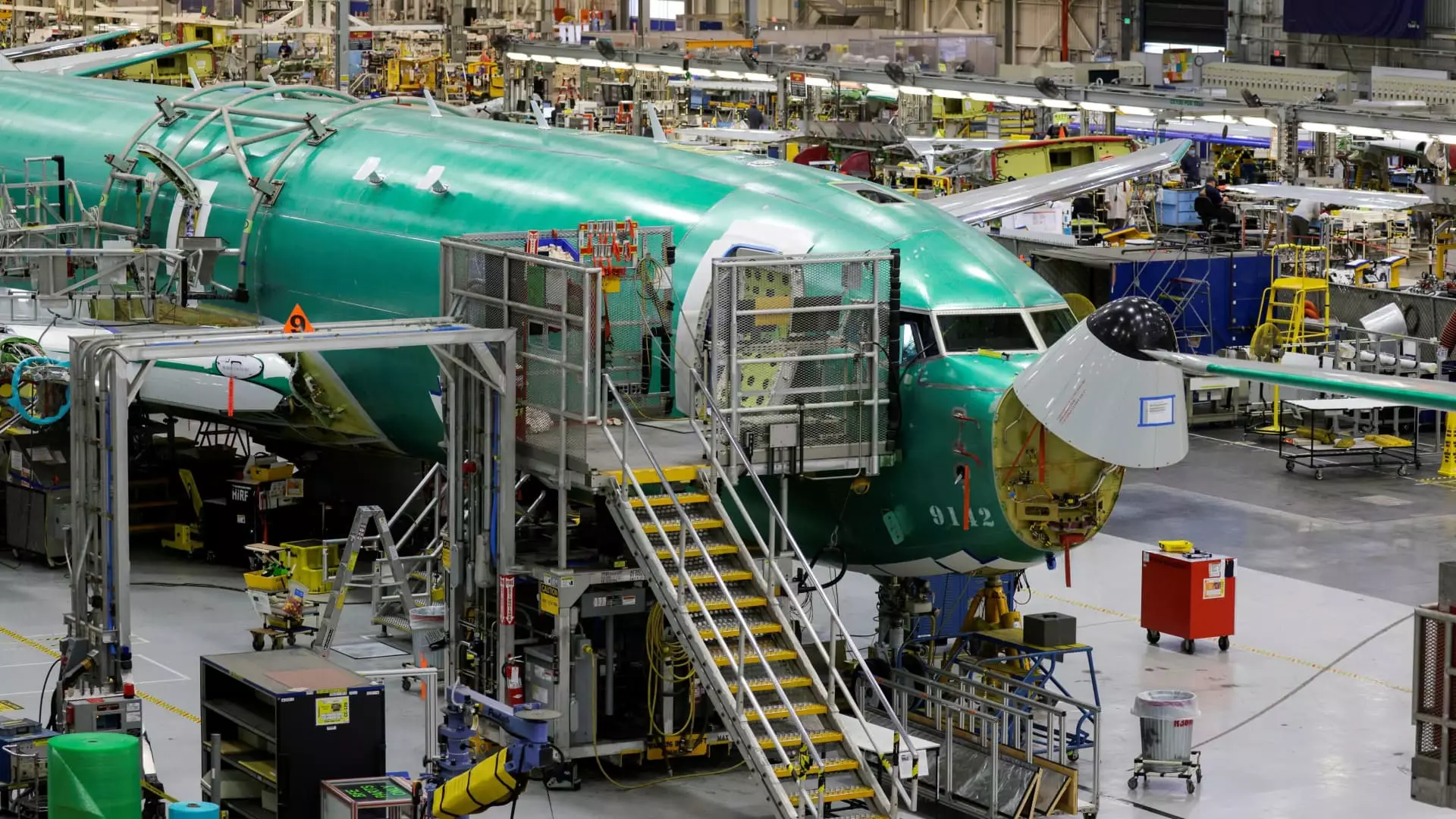The imposition of sweeping tariffs by President Donald Trump promises to overshadow the American aerospace industry, one of the nation’s most vital economic engines. This sweeping tariff strategy, indiscriminate and haphazard, is projected to escalate costs for companies like Boeing and Airbus, pushing the industry into a precarious economic situation. Dak Hardwick, vice president of international affairs at the Aerospace Industries Association, encapsulates the fear that these burdens will drive up prices and negatively affect an industry critical to addressing the country’s trade deficit—an alarming $100 billion annually.
Tariffs generally appear as a protective measure designed to bolster domestic manufacturing, yet the reality here is much different. Rather than protecting American workers, it flies in the face of the very essence of the aerospace industry, which has thrived on global partnerships. The reliance on a free-trade framework has been a boon—offering consumers high-quality aircraft at competitive prices—which is now at risk of disintegration under this heavy-handed approach.
Trade Agreements at Risk
The almost 50-year-old trade agreements that have allowed duty-free exchanges of civilian aircraft are now threatened, as pressure mounts from industry leaders for the Trump administration to preserve these vital privileges. The U.S. aerospace sector is ingrained in a global supply chain, with many components hailing from overseas. To willfully disrupt this ecosystem, by imposing tariffs, is akin to shooting oneself in the foot while claiming to stand for American job creation.
Boeing’s CEO, Kelly Ortberg, articulately expressed this paradox at a recent Senate hearing: “We really are the ideal kind of export company.” Boeing leverages international markets to create jobs domestically, illustrating the fact that tariffs—far from being a protective mechanism for American workers—could strangle the very job creation that the administration talks so much about.
The Price of Protectionism
Economic theory suggests that tariffs raise consumer costs, leading to reduced demand—a notion that rings dangerously true. With Boeing and GE Aerospace already reeling from rising costs due to tariffs on critical materials like steel and aluminum, the ripple effect is imminent. As Hardwick notes, such price jumps will have to be absorbed by producers or passed on to consumers, creating inflationary pressures in an already fragile economy. Jefferies analyst Sheila Kahyaoglu has indicated this situation will ultimately translate to consumers facing significantly higher prices for air travel more broadly.
It’s also essential to consider the logistical implications. The aerospace industry operates under long-term contracts where material prices are set ahead of time. These contractual arrangements mean that companies face a financial quagmire as they suddenly have to factor in increased costs—an untenable scenario that has the potential to delay production timelines and disrupt delivery schedules across the board.
Market Reactions
Investors seem to have absorbed the shockwaves from the announcement of tariffs, with shares in major aerospace players plummeting. This market turmoil signals more than just temporary jitters; it reflects a deep-seated anxiety about the future viability of an industry that has traditionally boasted a significant trade surplus. Richard Aboulafia, managing director at AeroDynamic Advisory, rightly highlights the absurdity of launching a trade war against an export-dominant industry.
The seemingly haphazard approach to tariff imposition also brings to light fundamental misunderstandings of how international trade, particularly in the aerospace sector, operates. The idea of a “national jet” is an illusion; the intricate supply chains mean that airplanes are a patchwork of contributions from around the globe. Tariffs indiscriminately disrupt this delicate balance, compounding existing stresses from supply chain shortages exacerbated by the COVID-19 pandemic.
The Fragility of Supply Chains
The aerospace sector is far from fully recovered from the disruptions caused by the pandemic. More than ever, companies are grappling with labor shortages and resource scarcities while simultaneously trying to ramp up production in response to renewed demand for air travel. This precarious situation only complicates matters as they are now faced with the challenge of rising costs imposed by tariffs.
Even manufacturing hubs like Alabama, where Airbus has expanded production capacity, remain vulnerable. While local assemblies take place, much of the work—like the creation of wings and fuselages—still occurs overseas. Hence, any tariff imposed on imported parts not only adds cost but also jeopardizes the operational viability of U.S. facilities that, paradoxically, are being positioned as a stronghold for American jobs.
In an age where interconnectedness defines success, reversion to protectionist policies risks undermining the strengths of American industries poised for global competitiveness. The tariffs signal a misguided venture into isolationism that can egregiously hurt our economic stalwarts while masquerading as national fortification.

